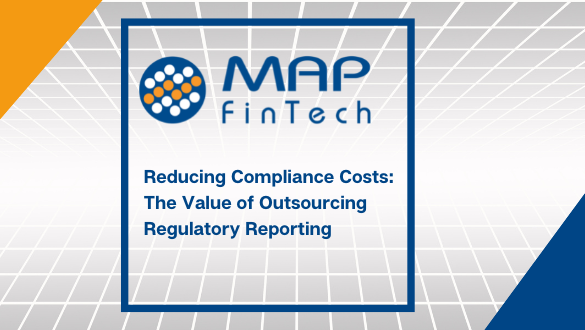Regulatory reporting consists of the submission of data to national competent authorities (NCAs) or authorized Trade Repositories in order to comply with the enacted regulatory provisions.
Simply stated, it is the process financial services firms must follow to demonstrate compliance with the established rules.
This so-called cost of compliance is materially significant and burdensome. However, the opposite is also true; the cost is even greater when it comes to non-compliance!
In this article, from our experience as industry veterans, we will examine the many factors involved in the cost of compliance and determine whether a business should undertake such an enormous endeavor organically or, from a cost/benefit analysis, rely on the resources and expertise offered by a third-party.
Going at It Alone: What Should You Consider?
Below are some points companies must consider when deciding whether they should self-report or opt for a third-party solution.
Technology & Implementation:
- Start-up costs
- Hardware
- Software (proprietary or licensed)
- Extraction and consolidation of data of various formats from multiple sources with the interpretation of regulatory complex requirements/fields
- Connection fees (direct data submission to NCA (where applicable))
- Development team and support
- Hosting
Regulatory Compliance:
- Multi-jurisdictions (if applicable)
- Technical standards requiring deep-dive analysis and comprehension
- Monitoring and reconciliation
- Staying up-to-date with amending reporting requirements
Reporting:
- The higher costs are associated with direct reporting to a Trade Repository (TR) as opposed to the cost savings available through the synergies and, where applicable (aggregation) offered via a trusted third-party provider.
Human Capital:
- Cost of employing experienced professionals
- Required continued training
Outsourcing Solutions for Regulatory Reporting
The above is not exhaustive but provides a high-level overview of the many factors to consider when studying the cost of compliance.
Fortunately, there are many solutions available that allow financial institutions to free up capital and resources and concentrate on their core business.
Most importantly, by utilizing an established third-party vendor with specific regulatory reporting expertise, the required capital investment in infrastructure, and supplementary dedicated support. Financial institutions may benefit from the inherited synergies and economies of scale offered by such a large specialist provider as opposed to going solo and self-reporting.
Utilizing a Professional Service Provider
Malcolm Gladwell discusses in his bestseller, Outliers, “to become an expert, it takes 10,000 hours (or approximately 5 years full-time work) of deliberate practice with an eye on mastery.”
With the ever-changing regulatory landscape, it is important to be mindful of the inherent risks and ever-present pitfalls that can plague non-discerning participants. Utilizing a professional service provider can help navigate through this cumbersome process.
The real cost of compliance is the price of admission. As discussed above, an in-house solution should not be taken lightly. Whereas, when considering the options available, outsourcing offers a lot more for less.
Leverage the Power of RegTech with MAP FinTech
MAP FinTech is highly regarded for its regulatory technology (RegTech) and services innovation.
We help clients push the boundaries of what’s possible in regulatory technology, delivering deep expertise and innovative solutions.
All our solutions are offered under our award-winning Polaris Platform, which provides our clients with peace of mind and allows them to concentrate on what they do best.
Our services are bundled with solutions from some of the biggest vendors in the market, ensuring quality service. At the same time, we cover our clients’ regulatory reporting needs via our compliance expertise.
Take Control of the Entire Reporting Process
This solution has been developed in-house, which provides our clients with complete control of the entire reporting process—from data sourcing to validations, enhancements, generation, and submission of the reports, and receiving a presentation of feedback, all via a user-friendly portal.
It also delivers unparalleled flexibility to quickly adapt to new and evolving regulations and the highly dynamic regulatory environment. Matching this adaptability with our unwavering commitment to customer service and innovation has allowed us to be one step ahead of the competition.
Finally, the platform works with existing systems, so there is no need for the user to adopt new technology. Data is extracted from the client through DB extraction or is pushed by the client to our side within CSV files over SFTP.
Contact our team of experts for more information and a demo of our award-winning Polaris Platform.
